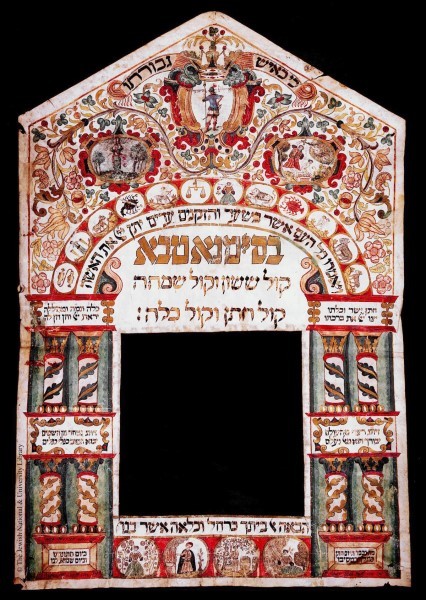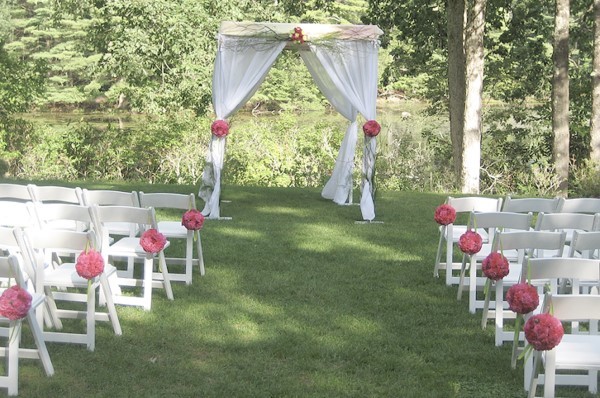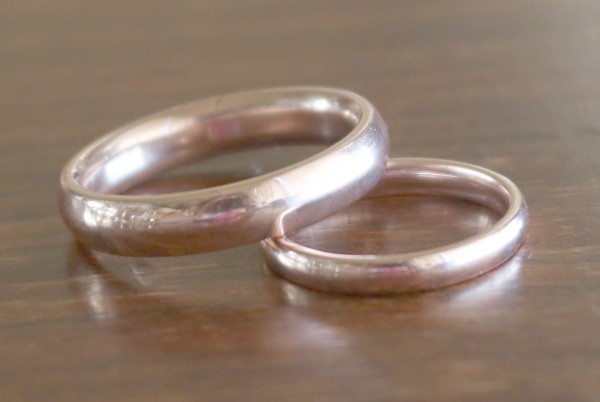Local rabbis explain Jewish weddings
What makes a wedding Jewish?
You probably already know that a Jewish wedding cannot take place from sunset on Friday until after dark on Saturday, and that both the groom and the bride must be Jewish. But there’s more. The Voice spoke to three Rhode Island rabbis – Rabbi Jeffrey Goldwasser of Temple Sinai in Cranston, Rabbi Marc Mandel of Touro Synagogue in Newport, and Rabbi Yossi Laufer of Chabad of West Bay Chai Center in Warwick – to find out.
Our sources made the perfect experts because, in addition to their positions as rabbis, they all have experienced the traditional Jewish wedding themselves. Rabbi Goldwasser shares, “My favorite customs of marriage, of course, are the ones that were most meaningful to me when my wife and I were married 23 years ago.
Rabbi Mandel says, “Jackie and I were married in Los Angeles, and we had our Huppah outdoors in February, and it was warm and beautiful.”
Rabbi Laufer recalls, “I remember how spiritual it felt to be under the Huppah after fasting all day. The Torah teaches that one is cleansed and forgiven from all their prior sins at their Huppah as on Yom Kippur. The joy and the dancing that everyone had at our wedding was definitely something to be remembered. They were happy not because we were moving out of our parents’ houses, but because another Jewish couple has gotten married, something the Talmud calls a miracle as great as the miracle of the splitting of the Red Sea when the Jewish people were leaving Egypt.”
The couple’s role in the ceremony
Rabbi Goldwasser:
A Jewish wedding service is called Kiddushin, which means “holiness.” A Jewish wedding ceremony is about sanctifying the relationship between the people who are getting married and calling their relationship a sacred union. That is not different from the way that weddings are understood in other religious traditions, but the emphasis is a bit different in Judaism. The declaration of holiness is affirmed, not just by the officiant, but by the couple themselves. The officiant of a Jewish wedding ceremony is known as a m’sader/et kiddushin, literally, “The arranger of holiness.” The officiant puts the ceremony together, but it is the members of the couple who marry each other and declare their union to be sacred.
The Jewish Wedding
Essentials
HUPPAH
Rabbi Goldwasser:
A Huppah is a wedding canopy that represents the sacred home and relationship that the couple are creating for themselves. [My wife and I] designed and created our own Huppah cover; it has hung over our bed everywhere we have lived since our wedding day.
KIDDUSH CUPS
Rabbi Goldwasser:
Kiddush cups are the ones from which the couple drinks to complete the blessings of betrothal and marriage under the Huppah.
RINGS
Rabbi Goldwasser:
Rings are also traditional symbols of marriage in Judaism, a token of consideration that makes the vows of marital obligation complete.
KETUBBAH
Rabbi Marc Mandel:
A ketubbah [Jewish prenuptial agreement] represents the groom’s total commitment to his bride.
Rabbi Goldwasser:
[My wife and I] wrote the words of our ketubbah, declaring our commitment to care for one another, to create a loving Jewish family together, and to strive to work for a better world together. We had our witnesses, dear old family friends, sign our ketubbah; it still hangs in its frame in our bedroom.
YIHUD ROOM
Rabbi Goldwasser:
Immediately following our wedding ceremony, we retreated to a private room for yichud before greeting our wedding guests; it gave us a private moment to look into each other’s eyes and to say, “Yes, we are really married now!” [Jewish law forbids a man and woman who are not married from being secluded together. Entering the yichud room together is symbolic of their married state.]
The Top Traditions
BADEKEN
Rabbi Goldwasser:
The ritual of Badeken [the ceremony where the groom veils the bride prior to the wedding ceremony] recalls the veil that hid Leah’s identity from Jacob.
Rabbi Mandel:
There is so much energy in the room at that time.
BREAKING OF THE GLASS
Rabbi Mandel:
The breaking of the glass under the Huppah is quintessentially Jewish. [The breaking of a glass has many meanings, one of which is breaking with the past. It also recalls the Talmud, which states, “Joining two people in marriage is as difficult as splitting the sea.”]
DANCING
Rabbi Mandel:
The dancing shows that it is a joy to fulfill the mitzvah of rejoicing with the bride and groom.
NUMBER SEVEN
Rabbi Laufer:
The number seven is significant in the ceremony. The groom places the ring on the bride’s seventh finger [it correlates to the seven days of creation of the world.] The bride circles the groom seven times. [The bride, by circling the groom, expresses her power over him. The seven circuits evoke the biblical story of Joshua leading the Israelites into the Promised Land. The wall around the groom’s heart is being compared to the wall that protected Jericho, but came tumbling down after the Israelites followed God’s command to walk around it seven times. As the Jews conquered the city, the bride conquers the groom by protecting him with her love.]
The Rabbi’s Role
Rabbi Goldwasser:
Every time a couple asks me to officiate at a wedding it is a special moment for me. It is a powerful reminder that Jewish tradition continues to have power and meaning for young people as they begin their lives together, that they are committed to transmitting Judaism to their children, and that they want one of the happiest days of their lives to be connected to the ways of Jewish joy.
Rabbi Mandel:
It’s important to make sure that all the steps in a Jewish wedding are done correctly and in an organized way. The couple is counting on you!
Rabbi Laufer:
All the customs and traditions help bring God into the couple’s wedding and marriage, and it is the rabbi’s responsibility to make sure it is all done correctly and that they get blessed with a holy and proper Jewish marriage.
Final Words of Wisdom
Rabbi Goldwasser:
In my last meeting with the couple before the wedding, I always give this advice: “Forget the old saying, “Love conquers all.” It’s not true. Know that the qualities that will keep your marriage healthy and strong – much more than love – are your qualities of compassion, forgiveness, patience, and commitment to something larger than yourselves. You may not feel like you are in love with your spouse in every single moment of your marriage, but your kind and open-hearted commitment to each other will get you through hard times.”
Rabbi Mandel:
Marriage is like investing in the stock market. You are in it for the long run, so don’t let the bumps along the way get you nervous or upset.
Rabbi Laufer:
Remember that, after marriage, it is no longer “me versus you.” Instead, it is “we.” Instead of seeing two separate people, see yourselves as a family. A successful Jewish marriage requires a Jewish house filled with meaning and purpose. And the best place to find Jewish meaning and purpose is in the Torah. It encourages keeping a Kosher kitchen, observing Shabbos, following the Laws of Family Purity [abstaining from the physical expression of love for a number of days a month], and a full Jewish education for the children.
SAM SERBY is a freelance writer who lives in East Greenwich. He previously worked at the Peres Center for Peace in Tel Aviv.













